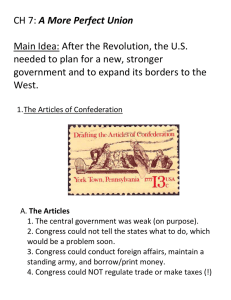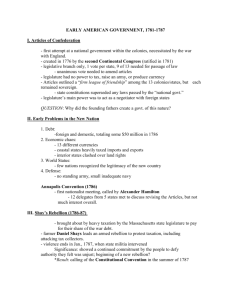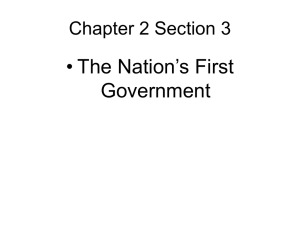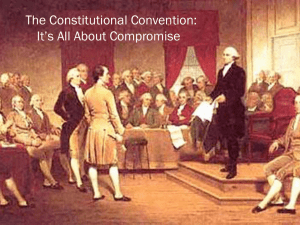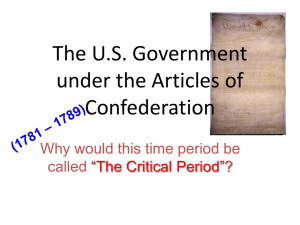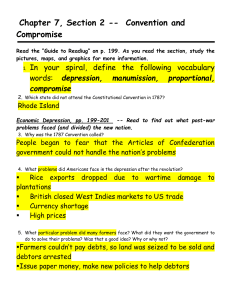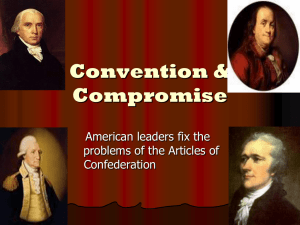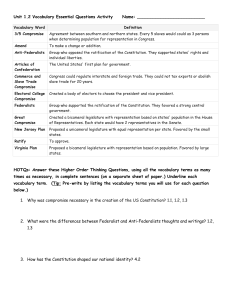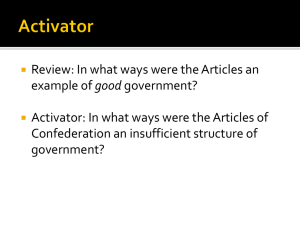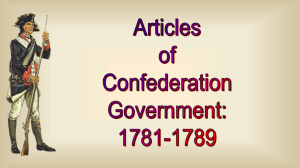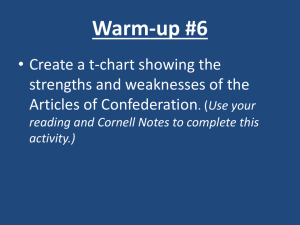Shays's Rebellion Causes: • Colonies were in a financial collapse
advertisement
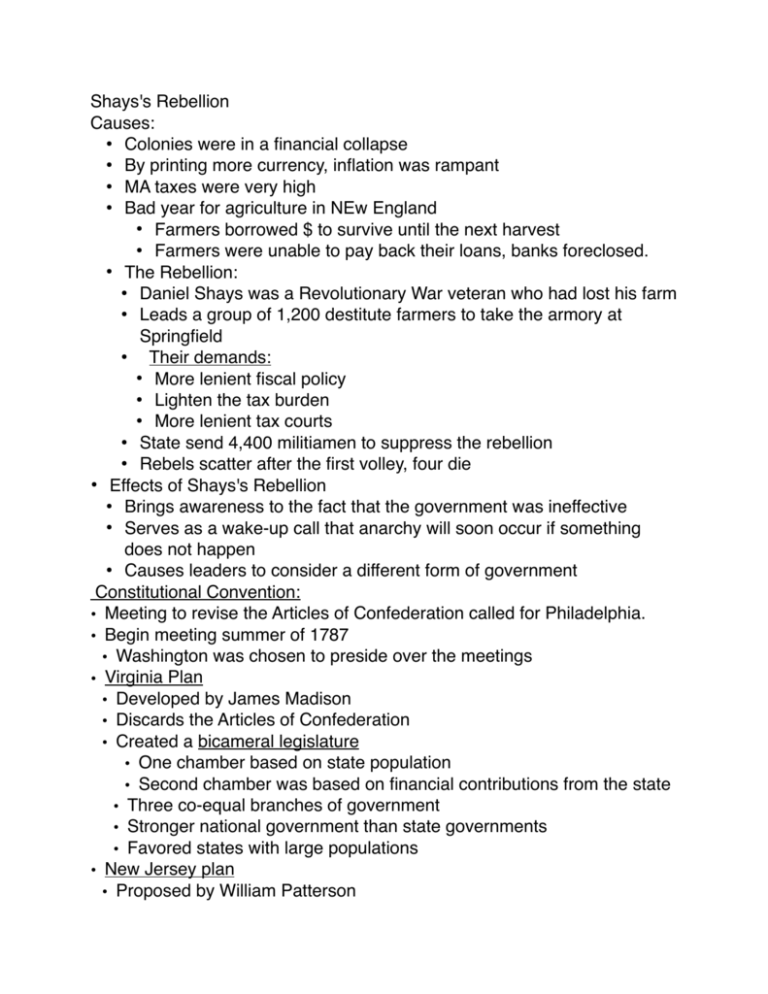
Shays's Rebellion Causes: • Colonies were in a financial collapse • By printing more currency, inflation was rampant • MA taxes were very high • Bad year for agriculture in NEw England • Farmers borrowed $ to survive until the next harvest • Farmers were unable to pay back their loans, banks foreclosed. • The Rebellion: • Daniel Shays was a Revolutionary War veteran who had lost his farm • Leads a group of 1,200 destitute farmers to take the armory at Springfield • Their demands: • More lenient fiscal policy • Lighten the tax burden • More lenient tax courts • State send 4,400 militiamen to suppress the rebellion • Rebels scatter after the first volley, four die • Effects of Shays's Rebellion • Brings awareness to the fact that the government was ineffective • Serves as a wake-up call that anarchy will soon occur if something does not happen • Causes leaders to consider a different form of government Constitutional Convention: • Meeting to revise the Articles of Confederation called for Philadelphia. • Begin meeting summer of 1787 • Washington was chosen to preside over the meetings • Virginia Plan • Developed by James Madison • Discards the Articles of Confederation • Created a bicameral legislature • One chamber based on state population • Second chamber was based on financial contributions from the state • Three co-equal branches of government • Stronger national government than state governments • Favored states with large populations • New Jersey plan • Proposed by William Patterson • Keep the Articles w/ revisions • Unicameral legislature • Legislature based on equal representation • Granted extended powers to the national government (power to tax) • Executive and court under the control of the legislature • Favored. States with smaller populations • Great Compromise/Connecticut Compromise • Proposed by Roger Sherman • Bicameral legislature • One chamber based on population (House) • One chamber based on equal representation (Senate) • Do away with the Articles • Three separate and co-equal branches • Establish a federal system of government balancing power equally between nation and state • Develops into the Constitution • The Question of slavery: • Issue 1: should slavery be prohibited? • Decision was to keep slavery legal, but limited its expansion. • Banned importation of slaves after 1808 • Levied a tax on imported slaves at $10 per person • Issue 2: do slaves count when determining representation in the House • A slave counts as 3/5th (Three-Fifths Compromise)
